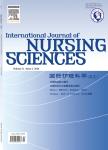The psychological trajectory from diagnosis to approaching end of life in patients undergoing hemodialysis in China: A qualitative study
作者机构:RNBlood Purification CentreThe First People's Hospital of ChangzhouChangzhouChina
出 版 物:《International Journal of Nursing Sciences》 (国际护理科学(英文))
年 卷 期:2017年第4卷第1期
页 面:29-33页
学科分类:0202[经济学-应用经济学] 02[经济学] 020205[经济学-产业经济学]
主 题:Patients undergoing hemodialysis Psychological trajectory Qualitative research
摘 要:Background: In China,the number of patients diagnosed with end-stage renal disease has increased rapidly in recent *** undergoing dialysis treatment often experience psychosocial challenges,such as death anxiety,which may potentially cause patients to withdraw from *** nurses and other practitioners who provide direct care to patients undergoing hemodialysis must understand how these challenges are perceived by patients and affect their daily ***: This article investigated the psychological trajectory and life experiences of hemodialysis patients to provide complementary guidance for nurses and healthcare ***: This study utilized a qualitative descriptive phenomenological *** were collected by conducting semistructured interviews and analyzed by content *** were collected through indepth interviews from May to December *** questions were designed to reveal the life experiences and perspectives of hemodialysis *** were selected by convenience sampling approach and recruited from outpatients receiving treatment in a blood-purification center in Jiangsu Province,***: Twenty-three participants were *** stages were extracted from the interview data:(1) afraid stage,(2) adapted stage,and (3) depression ***,three corresponding stages of physiological status were identified: (1) induced stage,(2) stable stage,and (3) severe complications or approaching-end-of-life ***: Patients undergoing dialysis exhibited differing psychological statuses at different physical ***,nurses must assess the psychophysiological symptoms of patients and design individual care plans for each *** studies should focus on developing stage-specific nursing-care protocols.



